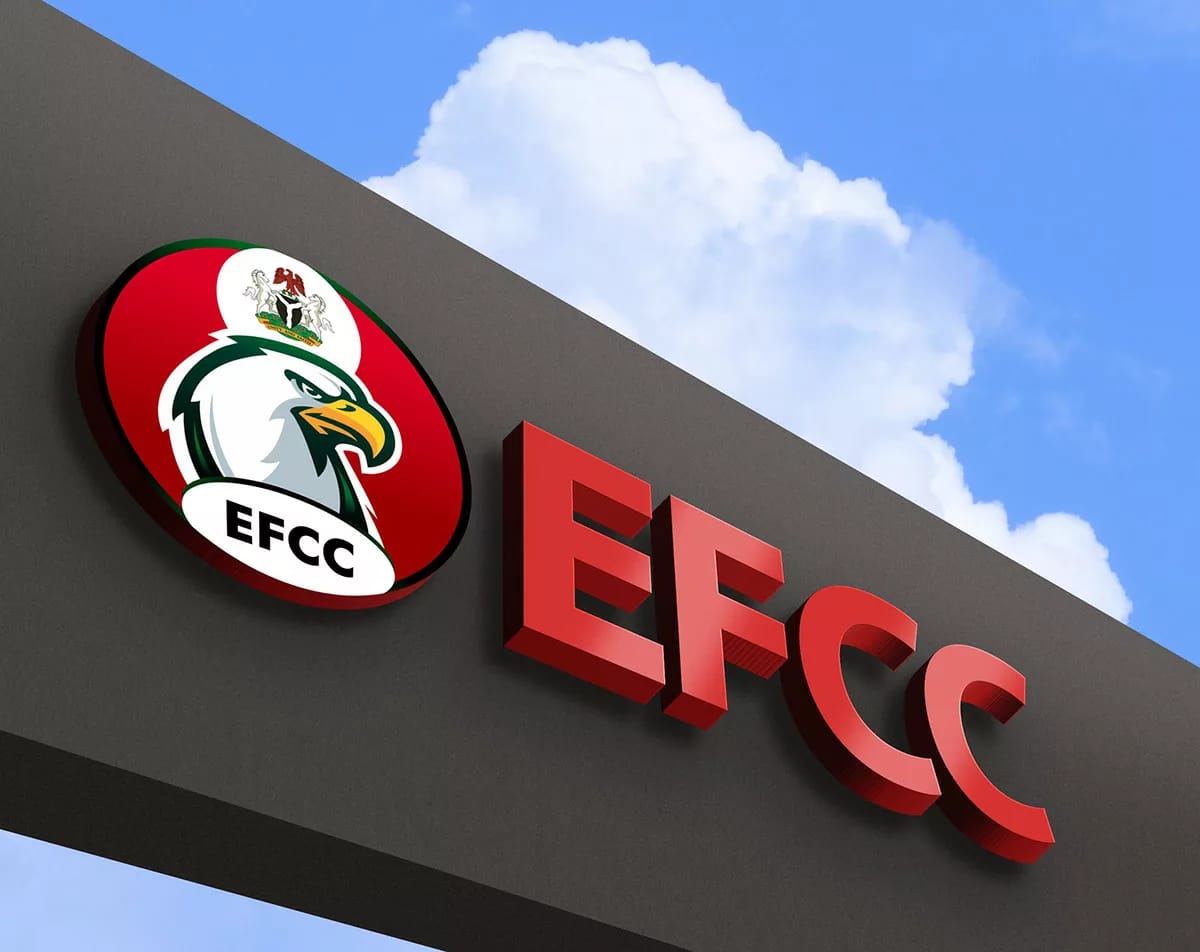Metro
Nestlé Nigeria Calls for Entries for the 2025 Media Awards

Nestlé Nigeria has announced call for entries for the 2025 Nestlé Media Awards, an annual initiative that celebrates journalistic excellence and impactful storytelling across Nigeria.
Since its inception, the Nestlé Media Awards have celebrated journalists who use their platforms to highlight real issues that matter to Nigerians, from affordable nutrition and youth empowerment to sustainable livelihoods and community resilience.
This year, Nestlé Nigeria introduces a new category, Business and Economy Reporting, which recognizes outstanding journalism that explores Nigeria’s business landscape including economic trends, entrepreneurship, policy challenges, and opportunities for growth. Unlike other categories, this is the only area where stories do not have to focus on Nestlé, allowing journalists to highlight broader solutions and developments shaping the nation’s economy. This addition reflects Nestlé Nigeria’s commitment to promoting solution-driven reporting that informs, inspires, and contributes to national development.
Speaking on the continued impact of the Awards, Victoria Uwadoka, Corporate Communications, Public Affairs and Sustainability Lead at Nestlé Nigeria, said:
“Over the past five years, the Nestlé Media Awards have reinforced our commitment to advancing responsible journalism that drives meaningful progress in society. We are proud of the role this platform continues to play in recognizing stories that inform, challenge perspectives, and elevate conversations around national development. This milestone edition strengthens that commitment with the introduction of the Business and Economy category, reflecting the realities of doing business in Nigeria today. By spotlighting journalism that amplifies solutions and supports growth for both small and large enterprises, we aim to contribute to a more resilient and inclusive economy for all.”
Journalists are also invited to submit entries across the existing categories: Nutrition and Affordable Food Solutions, Environmental Sustainability, Youth Empowerment and Development, Women Empowerment, Community Development, Finance, Agriculture, and Best Photojournalist Award. Entries in these categories must focus on Nestlé Nigeria’s activities or initiatives, either locally or globally, that align with the theme.
The Awards are open to journalists and media professionals in print, broadcast and digital media. Submitted stories must have been published between November 9, 2024, and November 7, 2025, and must align with one of the award themes, highlighting activities of Nestlé Nigeria PLC or Nestlé globally.
Each entry must include a link or copy of the published work, a short profile of the entrant (minimum 100 words), and a brief description of the story (100 words). Also, each participant may submit one entry per category, and each piece of work may only be entered in one category.
Submissions must be made via the 2025 Nestlé Nigeria Media Awards Entry Form no later than November 8, 2025.They will be evaluated by an independent panel of experienced media and industry professionals using criteria such as accuracy, depth of storytelling, and relevance to societal needs.
Winners will be announced and celebrated at an award ceremony in Lagos on December 5, 2025.
Metro
Adron Homes Hosts First-Ever Golf Tournament, Celebrates Excellence, Sportsmanship

Adron Homes set the stage for a remarkable sporting experience by hosting the Adron Cup Golf Tournament, bringing together golf enthusiasts, industry professionals, and distinguished guests for a day dedicated to excellence, competition, and camaraderie.
The tournament was officially declared open by the Chairman of Adron Group, Aare Adetola Emmanuelking, who earlier this year received the first-ever Nigeria’s Noble Golfer Award, reflecting his growing influence and passion for the game of golf. In a moment that drew applause across the course, he performed the ceremonial tee-off, symbolically setting the tournament in motion.
Following the opening, the Chairman embarked on a tour of the golf course, delighting participants and spectators alike. He played several holes, showing his enthusiasm for the game, while also taking time to engage, encourage, and cheer on the competing golfers.
Players described the experience as inspiring, noting that the Chairman’s presence elevated the spirit of the competition and reinforced the values of sportsmanship and unity that the tournament represents.
As the tournament concluded, Mr. Sunday Aderibigbe, representing the Chairman of Adron Homes, officiated the presentation of awards and the official unveiling ceremony. His presence added prestige to the event and affirmed the company’s continued commitment to celebrating excellence within the golfing community.
The inaugural Adron Cup Golf Tournament marks the beginning of what promises to be a premier sporting event in the region, reflecting Adron Group’s commitment not only to excellence in real estate but also to promoting recreation, community engagement, and healthy living through sport.
The event concluded with commendations for the organizers and enthusiastic feedback from participants, leaving a lasting impression on all who attended.
Metro
Alleged $510,000 Fraud: Bank Reports Ex-Staff to EFCC

The Economic and Financial Crimes Commission (EFCC) has arraigned a former bank staff member, Obinna Nwaobi, before the Federal High Court in Enugu over the alleged criminal diversion of a customer’s $510,000.
Nwaobi was brought before Justice C.O. Ajah on a seven-count charge bordering on obtaining money by false pretence, fraudulent conversion, and stealing.
The EFCC said he abused his position as a banking officer to illicitly divert funds entrusted to him by a customer.
According to the charge, Nwaobi allegedly received the sum of $510,000 from a customer under the guise of helping to manage and invest the funds but dishonestly converted the money to his personal use.
The offences, the Commission noted, violate Section 1(1)(a) of the Advance Fee Fraud Act 2006 and Sections 342 and 343 of the Criminal Code Law of Enugu State.
The Commission stated that the alleged fraud was uncovered after the new generation bank where Nwaobi previously worked detected suspicious transfers linked to him.
An internal review reportedly confirmed the irregularities, prompting the bank to escalate the matter to the EFCC, which then opened a full-scale investigation leading to his arraignment.
A senior compliance officer of the bank explained that strengthened surveillance systems and routine monitoring helped detect the suspicious transactions early.
The bank, he said, remains committed to sanitising the financial sector by reinforcing its anti-fraud unit and investing in advanced tools that track unusual account activities in real time.
The bank reaffirmed its collaboration with law-enforcement agencies to ensure that any staff member involved in fraudulent activity is promptly identified and prosecuted as part of wider efforts to protect customer funds and bolster public confidence in the banking system.
Nwaobi pleaded not guilty to all charges. Following his plea, the prosecution counsel requested a trial date and asked the court to remand the defendant.
Justice Ajah ordered that he be remanded at the Enugu State Correctional Facility pending the determination of his bail application and adjourned the matter for further hearing.
Metro
The Architectonics of Influence: Leadership, Power, and Deliberate Pursuit of Possibilities

By Tolulope A. Adegoke, PhD
“Leadership envisions the future, Power builds it, but only Control ensures it endures. In their deliberate synergy lies the architecture of all human progress,” – Tolulope A. Adegoke, PhD
Introduction: The Tripartite Foundation of Progress
At the heart of every significant human achievement—from the ascent of a thriving corporation to the resilience of a prosperous nation and the self-actualization of an individual—lies the potent interplay of three fundamental forces: Leadership, Power, and Control.
These concepts are often conflated or misunderstood. Yet, their distinct roles and synergistic relationship form the very bedrock upon which possibilities are envisioned and delivered. Leadership provides the vision and the compass; power furnishes the engine and the tools; and control ensures the steering and the governance. Together, they create an “architectonics of influence,” a deliberate framework for building a better future across all sectors of human endeavor.
Deconstructing the Core Concepts
- Leadership: The Compass of Purpose
Leadership is not merely a position; it is a process of social influence that maximizes the efforts of others toward achieving a goal. It is the domain of vision, inspiration, and emotional intelligence.
- For Peoples: Leadership manifests as mentorship, parenting, and community organizing. It empowers individuals to transcend their limitations, fostering personal growth, resilience, and a sense of agency.
- For Corporates: Leadership sets the strategic direction, cultivates culture, and inspires innovation. It is the force that aligns diverse talents toward a common mission, navigating market volatility and competitive pressures.
- For Nations: Leadership, at its best, articulates a national destiny, unites citizens around shared values, and steers the country through crises and opportunities on the global stage.
- Power: The Currency of Action
Power is the capacity to influence the behavior of others or the course of events. It is raw potential energy that, in itself, is neutral—its morality defined by its application. French and Raven’s classic bases of power provide a useful lens:
- Coercive & Reward Power: (Sticks and Carrots) Effective in the short term but often unsustainable, as they rely on external compliance rather than internal commitment.
- Legitimate Power: Derived from a formal position or title (e.g., CEO, Prime Minister).
- Expert Power: Granted based on knowledge, skills, and competence.
- Referent Power: The most potent form, earned through charisma, respect, and admirable qualities.
- Control: The Rudder of Stewardship
Control represents the systems, processes, and ethical frameworks that guide the application of power. It is the essential counterbalance that prevents power from becoming corrupt, arbitrary, or inefficient. Control is not about restriction, but about direction and stewardship.
- Mechanisms of Control: These include transparency, accountability, checks and balances, legal and regulatory frameworks, ethical codes of conduct, and performance metrics.
The Synergistic Equation: Leadership + Power + Control = Delivered Possibilities
The true impact occurs when these three elements are harmonized. Leadership without power is impotent; power without leadership is directionless; and both without control are dangerous.
The Formula for Impact: A visionary leader (Leadership) must wield appropriate forms of power (e.g., Expert and Referent) to mobilize resources and people. This application of power must then be channeled through robust control mechanisms to ensure it is effective, ethical, and aligned with the overarching goal. This synergy unlocks possibilities.
The Perils of Imbalance:
- Leadership without Power: The inspiring visionary with no authority or resources becomes a frustrated prophet, their ideas never materializing.
- Power without Leadership: The powerful but visionless authority figure (a tyrannical manager, a despotic ruler) creates chaos, stifles innovation, and leads to oppression or organizational decay.
- Power without Control: This is the definition of tyranny and corruption. It leads to the abuse of resources, the suppression of dissent, and ultimately, systemic failure (e.g., corporate scandals, state collapse).
Delivery Across Sectors: Peoples, Corporates, and Nations
- For Peoples: The Realm of Personal and Community Agency
- Leadership: Self-leadership—taking responsibility for one’s own growth and actions. Community leaders articulate a shared vision for neighborhood improvement.
- Power: The power of knowledge (Expert), the power of a strong network (Referent), and the collective power of organized action.
- Control: Personal discipline, ethical codes, and community-agreed rules of engagement.
- Delivered Possibilities: Empowered individuals achieve self-actualization. Cohesive communities solve local problems, foster social capital, and create environments where people can thrive.
- For Corporates: The Engine of Innovation and Value Creation
- Leadership: The CEO and C-suite set a compelling vision and culture. Middle managers translate strategy into action and empower their teams.
- Power: Legitimate power of hierarchy, expert power of specialized teams, and the referent power of a strong brand and respected leadership.
- Control: Corporate governance, board oversight, compliance departments, performance management systems, and a strong ethical culture.
- Delivered Possibilities: Sustainable profitability, market innovation, employee engagement and well-being, and long-term value for all stakeholders.
- For Nations: The Framework for Collective Prosperity and Stability
- Leadership: Elected officials, civil servants, and a judiciary that provide direction, uphold the law, and steward national resources.
- Power: The sovereign power of the state, derived from the consent of the governed (Legitimate), and exercised through institutions (military, judiciary, executive).
- Control: The Constitution, separation of powers, an independent judiciary, a free press, transparent elections, and anti-corruption watchdogs.
- Delivered Possibilities: Economic development, social justice, national security, public health, and the preservation of fundamental rights and freedoms—the foundation for a flourishing society.
The Indispensable Role of Control: From Stewardship to Possibilities
Control is the often-overlooked hero in this narrative. It is the difference between a dictator and a statesman, between a reckless conglomerate and a sustainable enterprise.
- Control Fosters Trust: Transparent and accountable systems build trust among citizens, employees, and investors, which is the currency of long-term collaboration.
- Control Enables Scalability: Without control mechanisms, organizations and nations cannot grow beyond a certain size without descending into inefficiency or chaos.
- Control Mitigates Risk: It provides the early warning systems and corrective actions that prevent catastrophic failures.
- Control Ensures Legitimacy: Power is seen as legitimate and worthy of support when it is exercised within a known and fair framework.
Conclusion: The Call for Conscious Stewardship
In a world of increasing complexity and interconnectedness, the deliberate and ethical management of leadership, power, and control is not a theoretical exercise—it is a practical imperative.
The ultimate delivery of possibilities—be it a child reaching their potential, a corporation pioneering a world-changing technology, or a nation achieving lasting peace and prosperity—rests on our collective ability to:
- Cultivate Leaders who are not only visionary but also humble, ethical, and empowered by referent and expert power.
- Wield Power consciously, recognizing its sources and its profound responsibility.
- Design and Uphold Control systems that are robust yet adaptable, ensuring that power is always a force for creation, not destruction.
The future does not simply happen; it is built. It is architected by those who understand that true, lasting power is the capacity to unlock human potential, and that the highest form of leadership is the stewardship of possibilities for all.
Dr. Tolulope A. Adegoke, AMBP-UN is a Doctor of Philosophy (PhD) in History and International Studies, Fellow Certified Management Consultant & Specialist, Fellow Certified Human Resource Management Professional, a Recipient of the Nigerian RoleModels Award (2024), and a Distinguished Ambassador For World Peace (AMBP-UN). He has also gained inclusion in the prestigious compendium, “Nigeria @65: Leaders of Distinction”.






